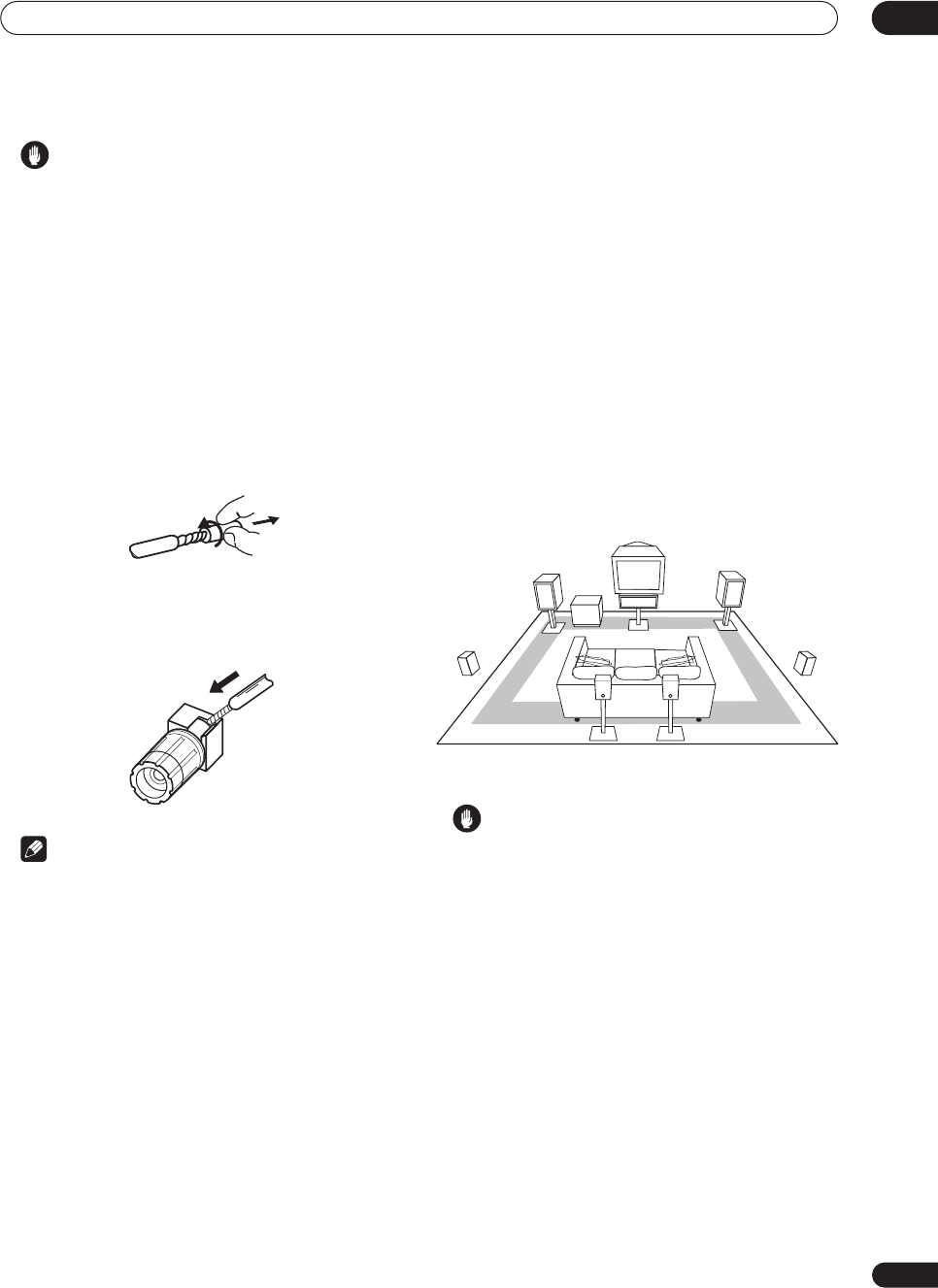
Connecting your equipment
02
25
En
Caution
• These speaker terminals can be under hazardous
voltage. When you connect or disconnect the speaker
cables, to prevent the risk of electric shock, do not
touch uninsulated parts before disconnecting the
power cord.
• Make sure that all the bare speaker wire is twisted
together and inserted fully into the speaker terminal.
If any of the bare speaker wire touches the back panel
it may cause the power to cut off as a safety measure.
Bare wire connections
Before you start connecting the speakers, make sure that
the speaker cable you’re going to use is properly
prepared with about 1 cm of insulator stripped from each
wire, and the exposed wire strands twisted together.
To connect a terminal, unscrew the terminal a few turns
until there is enough space to insert the exposed wire.
Once the wire is in position, tighten the terminal until the
wire is firmly clamped.
Note
• Please refer to the manual that came with your
speakers for details on how to connect the other end
of the speaker cables to your speakers.
• The speaker terminals on this amplifier can be
connected in a number of ways, depending on your
setup. See Speaker Systems on page 52 for an
overview of the possible configurations.
• Other connections on page 75 provides greater detail
on alternate speaker setups such as using speaker
system B (page 75), bi-surround (page 77), bi-amping
(page 76) and bi-wiring (page 77).
Placing the speakers
Where you put your speakers in the room has a big effect
on the quality of the sound. The following guidelines
should help you to get the best sound from your system.
(see also Optimizing your speaker setup on page 90).
• The subwoofer can be placed on the floor. Ideally, the
other speakers should be at about ear-level when
you’re listening to them. Putting the speakers on the
floor (except the subwoofer), or mounting them very
high on a wall is not recommended.
• For the best stereo effect, place the front speakers
2–2.5 m apart, at equal distance from the TV.
• Install the center speaker above or below the TV so
that the sound of the center channel is localized at
the TV screen.
• When placing speakers near the TV, use magnetically
shielded speakers to prevent possible interference,
such as discoloration of the picture when the TV is
switched on. If you do not have magnetically shielded
speakers and notice discoloration of the TV picture,
move the speakers farther away from the TV.
• If possible, install the surround speakers slightly
above ear level.
Caution
• Make sure that all speakers are securely installed.
This not only improves sound quality, but also
reduces the risk of damage or injury resulting from
speakers being knocked over or falling in the event of
external shocks such as earthquakes.
Front R
Front L
Surround
L
Surround
back R
Surround
R
Sub-
woofer
Center
Surround
back L


















